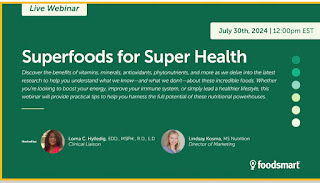Sugar & Skin Health: The Bittersweet Truth
Written By: Ashley Archer, 3rd Year Medical Student
Reviewed By: Lorna Hylledig, EDD., MSPH., RDN., LDN
Mmm! Cakes, ice cream, and gummy candies are the guilty pleasures of so many people, including me. Many of us have come to learn that, unfortunately, these sweet treats aren't our BFF in terms of maintaining our waistlines and overall health. To add insult to injury, our favorite sugary treats can also negatively impact the health and appearance of our skin. That's right, your late-night sweet tooth could be contributing to acne and wrinkle formation.
So, How Exactly Does Sugar Impact Skin?
Acne
In order to understand how sugar may contribute to acne, we must first appreciate the key players in its pathogenesis. Acne is caused by the overproduction of the oily substance that lubricates and protects our skin called sebum (1). It is also caused by inflammation and excessive proliferation of keratinocytes (skin cells) and the bacterium propionibacterium acnes in pilosebaceous units— which are complexes of hair follicles, arrector pili muscles, and sebum-secreting glands (1).
So, what does sugar have to do with this? Well, when one consumes sugar-laden foods and beverages, insulin— the hormone responsible for lowering blood glucose levels— spikes. Elevated insulin levels promote the release of androgens— sex hormones— which increase the production and secretion of sebum and stimulate the proliferation of keratinocytes (2).
Wrinkles
Wrinkling of the skin is an inevitable sign of the natural aging process. Excessive sugar intake, however, may accelerate wrinkle formation. Sugar binds to proteins in the body via a process called glycation. The resulting molecules are called advanced glycation end products or AGEs (3). AGEs can damage elastin and collagen— proteins that provide elasticity, structure, and strength— in the skin, resulting in premature wrinkles, fine lines, reduced elasticity, and sagging (3).
How Much Sugar Is Too Much?
According to the American Heart Association, women should consume less than 6 teaspoons (25 grams) of added sugar daily, while men are recommended to consume less than 9 teaspoons (36 grams)(4). In terms of total sugar (added and natural), women should limit their intake to 48 grams per day and men should limit theirs to 72 grams (5).
What Can I Do To Reduce My Sugar Intake?
The first step in your reduced sugar journey should be to get very comfortable with reading nutrition labels. Take a look at the number of grams of sugar that are in your packaged goods and look out for juice concentrates, syrups, and words ending in “-ose,” such as maltose, dextrose, and fructose, in the ingredients list to spot added and hidden sugars (5). Sweets are not the only foods laden with sugar. Some of your favorite savory goods like bread, pasta sauces, and salad dressings may have large amounts of added sugars.
Once you've gotten the hang of reading nutrition labels, the next step in your journey is to focus on getting your carbohydrates from fiber-rich whole food sources such as fruits, vegetables, and whole grains. But of course, you're human and love indulging in sweet treats every now and then. So, your next move should be to seek out healthier alternatives for your favorite indulgences. Here are some of my fav substitutions:
- Instead of traditional sodas, juices, or sweetened teas, opt for flavored sparkling water (I highly recommend Spindrift), kombucha, or pre-biotic soda.
- Rather than purchasing sweetened coffee drinks, make your coffee at home. This will enable you to control the amount of added sugar in your beverage.
- Try plain Greek yogurt with fresh fruit in lieu of sweetened yogurt. Freeze this combo for a satisfying ice cream alternative.
- Substitute gummy or hard candies with frozen grapes.
- For a healthy replacement for your favorite pies and baked goods, have a taste of baked or grilled apples, pears, peaches, or pineapples.
- Or simply have smaller portions of your must-have treats!
With a little effort to cut down on your sugar intake, you can lead a healthier life while keeping your skin youthful and radiant. Sounds like a sweet reward to me!
References:
(1) Vasam M, Korutla S, Bohara RA. Acne vulgaris: A review of the pathophysiology, treatment, and recent nanotechnology based advances. Biochem Biophys Rep. 2023;36:101578. Published 2023 Nov 23. doi:10.1016/j.bbrep.2023.101578
(2) Kucharska A, Szmurło A, Sińska B. Significance of diet in treated and untreated acne vulgaris. Postepy Dermatol Alergol. 2016;33(2):81-86. doi:10.5114/ada.2016.59146
(3) Wang L, Jiang Y, Zhao C. The effects of advanced glycation end-products on skin and potential anti-glycation strategies. Exp Dermatol. 2024;33(4):e15065. doi:10.1111/exd.15065
(4) https://www.heart.org/en/healthy-living/healthy-eating/eat-smart/sugar/how-much-sugar-is-too-much








Ashley, thank you so much for your contribution!
ReplyDeleteWe must sacrifice sugar indulgence for the sake of healthy, radiant skin!
ReplyDeleteWhile radiant skin is surely a beautiful thing and may be a motivator for some, one would hope that the key takeaway from the post is the adverse and deleterious effects that high sugar consumption has on overall health and wellbeing in general.
DeleteThank you! I need to cut back on my sugar.
ReplyDelete